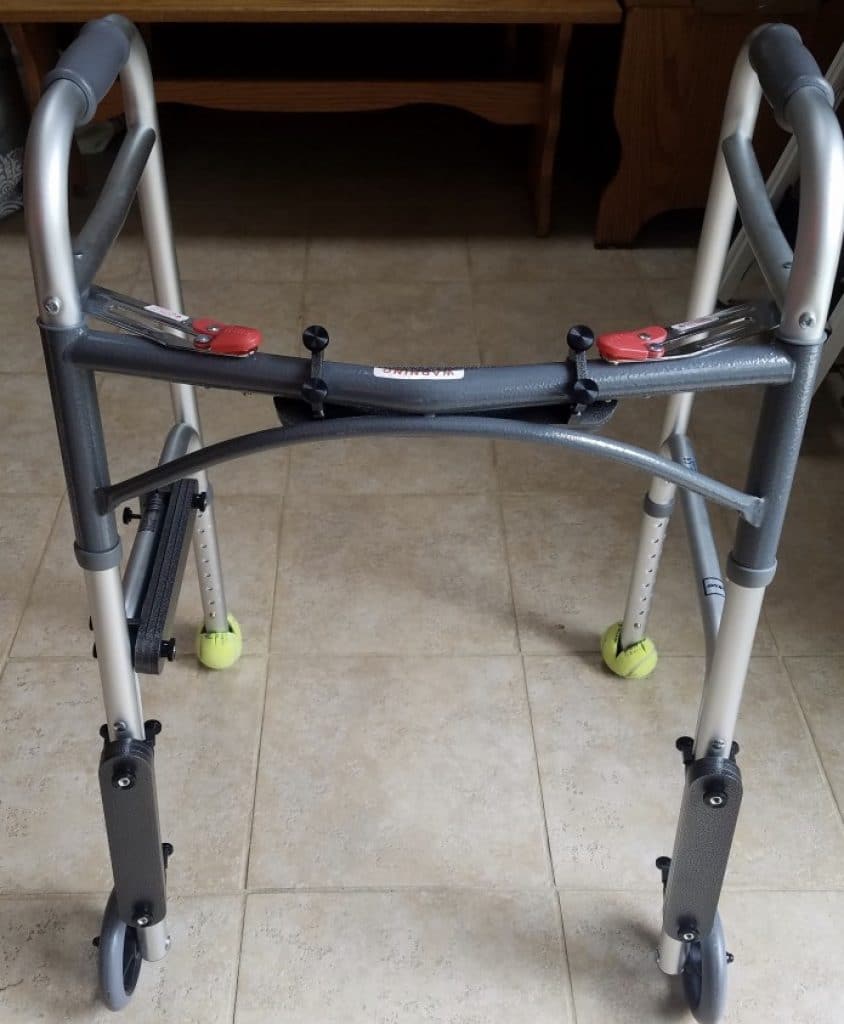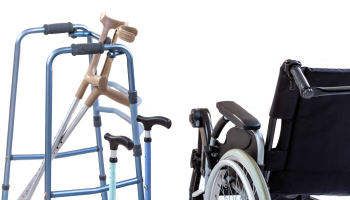
Have you seen this weighted walker attachment that helps with improving balance and posture in seniors as well as people with neurological disorders? It is called Fali walker attachment. Well, it has been said to help people with Parkinson’s so that they can walk with minimal supervision or support from caregivers. But how effective is this?
Well, we dug deep into research to measure the efficacy of this. Here is what we found out.
Going through Amazon reviews of people who bought weighted bags to add to their walkers found out that it adds more balance so that there are reduced falls and more stability.
According to an article on Physical Therapy & Rehabilitation Journal, adding weight to your wheeled walker is going to help a lot in your coordination and balance. The article goes ahead to say that to add weight to any walker, all you will need is some mechanical tubing and then go ahead to add a plumber’s melted lead.
Weighted walkers for ataxia
According to Neurologic Interventions for Physical Therapy, a weighted walker is going to afford people with ataxia more stability and mobility. Suzanne C. Martin and Mary Kessler say that it is the best option for people with ataxia. A wheeled walker with a seat they say would be appropriate for when you want lots of rest periods. A motorized scooter would be great if you have tremors or are likely to easily fall when walking.
Weighted walker for Parkinson
According to Physical Medicine and Rehabilitation: Principles and Practice, Volume 1, people with Parkinson’s gait can benefit from assistive devices such as weighted walkers to help them have stability.
The book, Frontotemporal Disorders: Information for Patients, Families, and Caregivers, weighs in on this discussion with evidence that weighted walkers with sandbags over the lower front rung do help with giving Parkinsons patients balance.
The book Dementias say that when doing physical therapy for PD patients, it is good to have a weighted walker that will help the patient get more balance and be stable when walking.
What contributes to the weight of the walker
A walker’s weight contributes to the stability and balance that a patient will have when using one. While lightweight is going to be easy for the patient to carry around, it is not always the best. That is why we recommend that one get a ustep walker which has been shown to be heavy with a stable base and a reversible braking system.
Here we look at factors that contribute to the weight of your walker:
Accessories
Accessories in the walker will include a seating space plus headrest that will help in adding the weight of your walker. You could also have one that has a storage pouch so that the patient can carry some personal effects as they move around.
Wheels
Wheeled walker is of course going to be heavier than the standard model. The wheels add weight and will of course have brakes or rubber stoppers that add to the weight of your walker.
Frame size and material
The frame material of your walker as well as how big it is contributes to the overall weight. Aluminum frames are the lightest while steel will be heavier.






